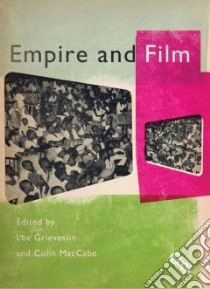- Libreria
- >
- Libri in lingua
- >
- Bambini 6-8 anni
- >
- Scienze umane
Empire and Film - 9781844574216
Un libro in lingua di Grieveson Lee (EDT) MacCabe Colin (EDT) edito da Palgrave Macmillan, 2011
- € 35.80
- Il prezzo è variabile in funzione del cambio della valuta d’origine
In these two volumes of original essays, scholars from around the world address the history of British colonial cinema stretching from the emergence of cinema at the height of imperialism around the turn of the century to the separate moments of decolonization, the ending of formal imperialism, in the post-Second World War period. The books explore the interplay of political control and cultural representation in the late colonial period. Collectively, the authors gathered together here trace out the various ways cinema was used in projects of colonial governance and show how cinema became important to the setting in place of ideological and affective structures that continue to resonate in the world of today. At its height, after 1919 when swathes of German East Africa fell to the UK in the form of the League of Nations Mandates, the British Empire claimed 58 countries, 400 million subjects, and 14 million square miles of ground. Cultural work would be central to the maintenance and governance of this diverse political space. The production, distribution, and exhibition of film was quickly aligned with this task, and was utilized by State and industrial and philanthropic institutions to further colonial projects, to shape the subject positions of colonizer and colonized, to demarcate between 'civilzed' and 'uncivilized' and codify difference, and to foster a political economy of imperialism that was predicated on distinctions between core and periphery. The first volume, Film and Empire, concentrates on the years 1895-1939 that encompass, broadly speaking, the enmeshing of cinema and the expansion and consolidation of empire. It begins with two essays that offer new perspectives on the conceptual and historical terrain of colonial cinema. Authors then address the emergence of cinema in the context of an imperial world system; the establishment and consolidation of State financed documentary cinema; philanthropic and educational formations of colonial cinema; industrial sponsored film; amateur and missionary production; and aspects of fictional cinema's engagement with empire.
Informazioni bibliografiche
- Titolo del Libro in lingua: Empire and Film
- Lingua: English
- Autori : Grieveson Lee (EDT) MacCabe Colin (EDT)
- Editore: Palgrave Macmillan
- Data di Pubblicazione: 15 Ottobre '11
- Genere: PERFORMING ARTS
- ISBN-10: 1844574210
- EAN-13: 9781844574216


